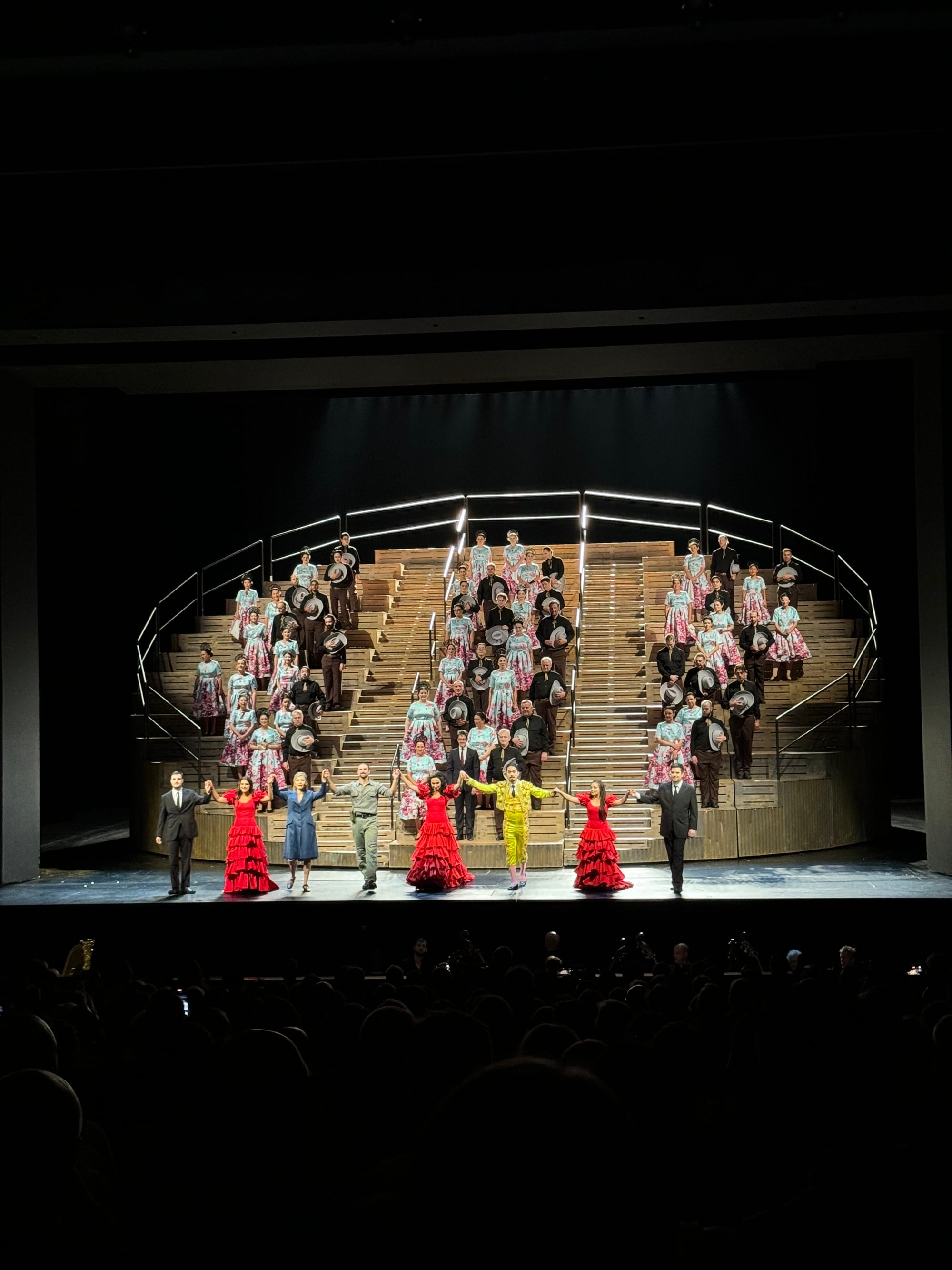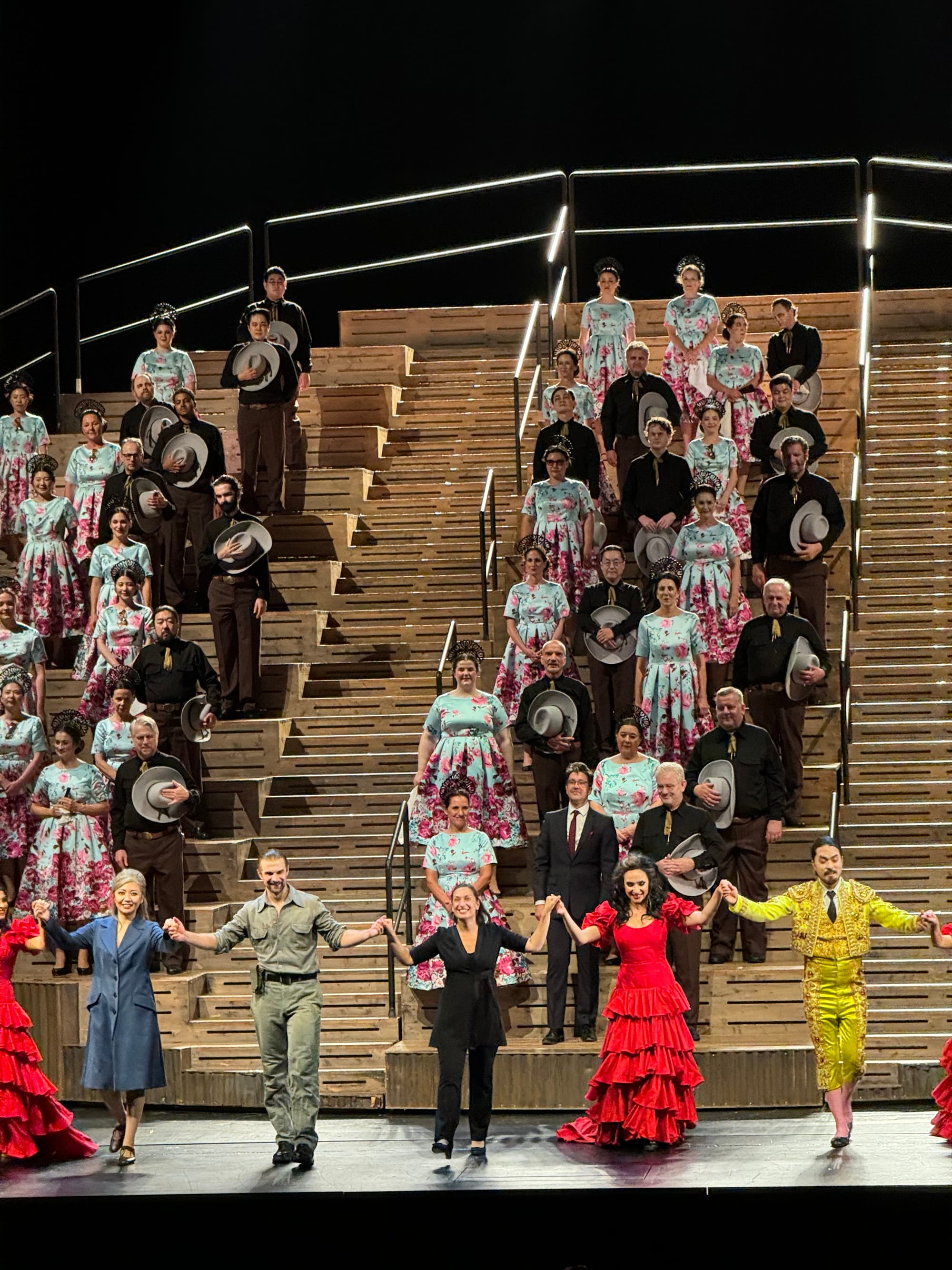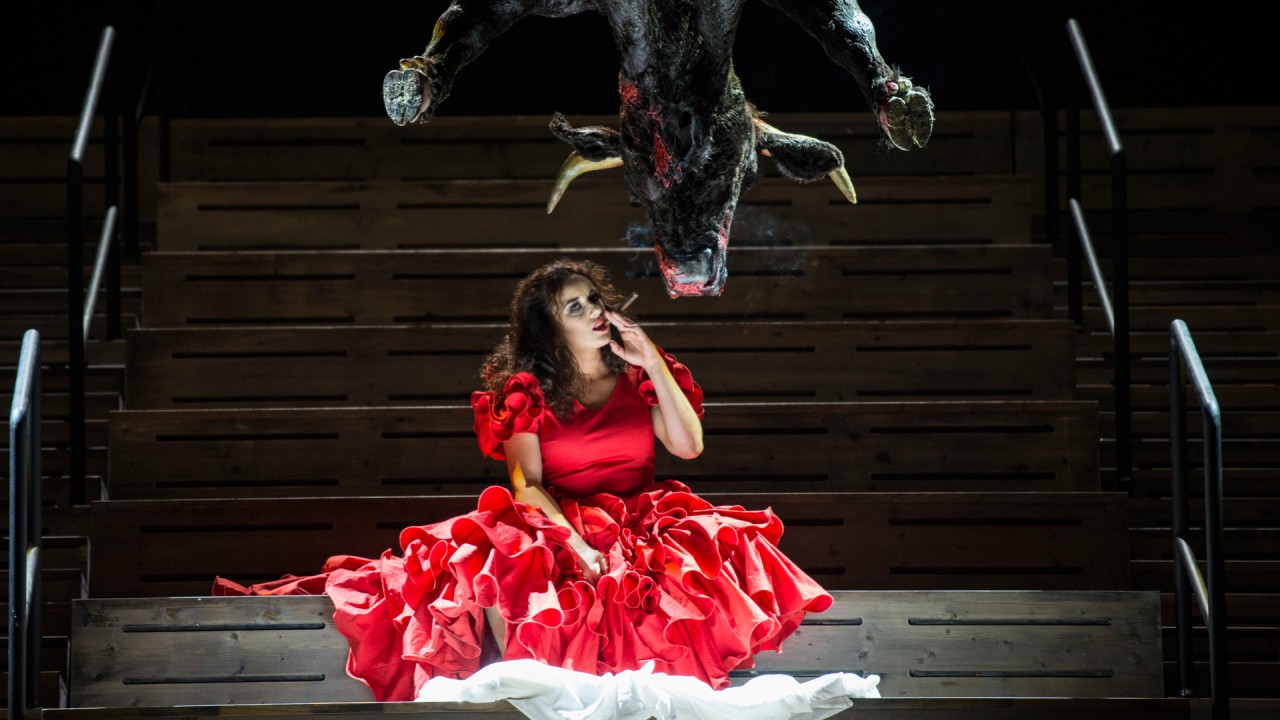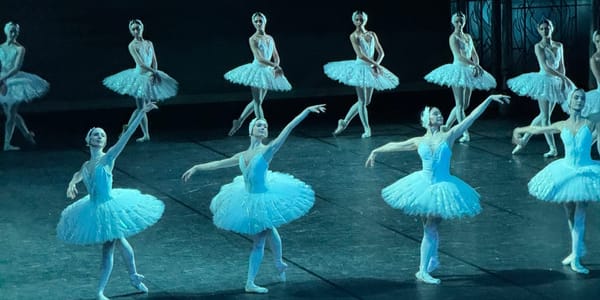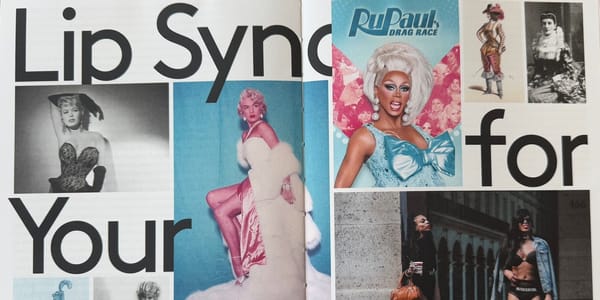Carmen at Deutsche Oper Berlin
This production leans heavily into these tropes and paints an uncomfortable, but all too realistic picture of patriarchal sexuality and misogynist violence with rapey undertones that dominate throughout the piece.
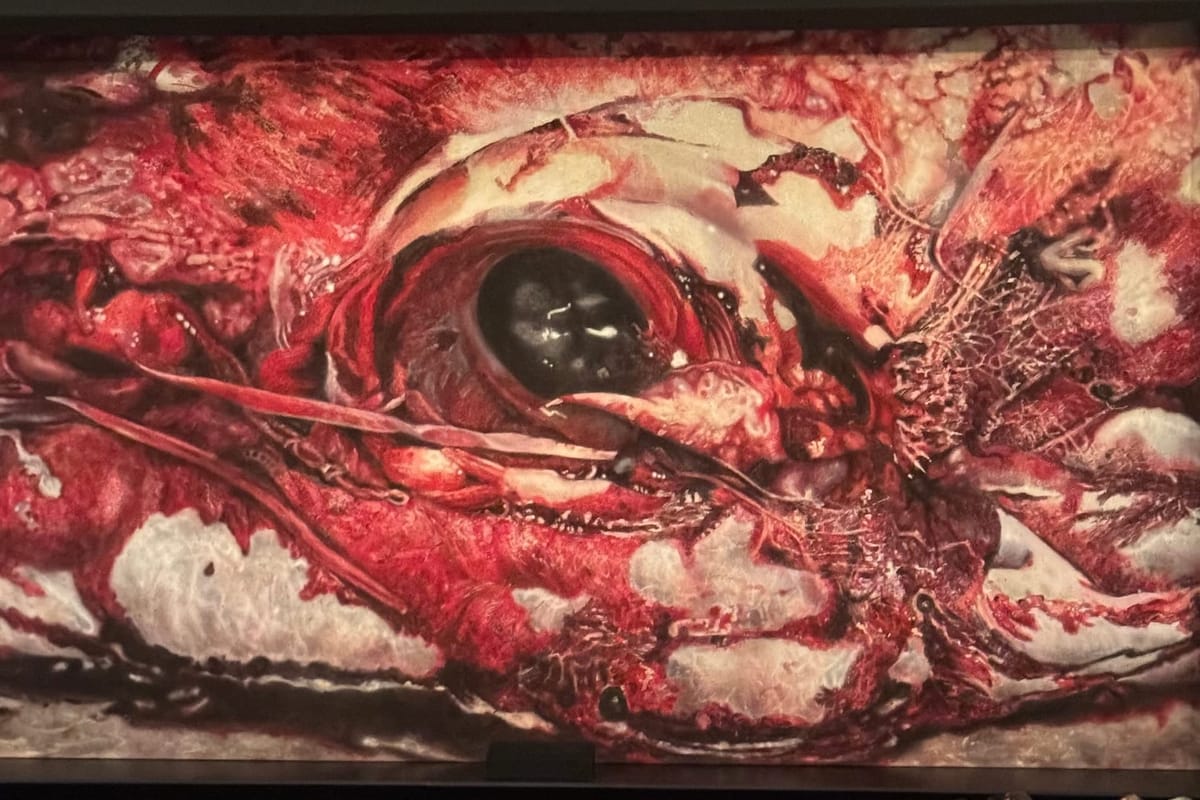
⭐️⭐️⭐️
🎭 Carmen
🎶 Georges Bizet
🏛️ Deutsche Oper Berlin
🗓️ 06.09.2024
“Would you rather be trapped in an arena with a bull or a man?” Ask any woman after she’s seen the production of Carmen at Deutsche Oper Berlin and I would confidently predict her answer. The viral reference goes well with Carmen, which by default is a very tropey opera: seductive harlot vs. god-fearing innocence, jealous man vs. even more jealous man, male power vs. female Independence, fiery passion and violent death.
This production leans heavily into these tropes and paints an uncomfortable, but all too realistic picture of patriarchal sexuality and misogynist violence with rapey undertones that dominate throughout the piece. Micaëla is immediately in danger of being abused by a platoon of horny soldiers, Escamillo gifts Carmen massive testicles of a slain bull, guns become phallic symbolism, and finally, the most famous femicide in opera occurs—particularly violent in this production, with José ripping out Carmen’s heart (which I believe is displayed in a gory close-up on the curtain. Or not? Let me know in the poll).
Interestingly, it is only the pious Micaëla that at one point questions these dynamics. When José violently chokes Carmen, Micaëla—pistol in hand—is conflicted over whether to stand by the man she loves, or instead protect a woman from male violence, even though to her she a dangerous temptress threatening her man. A novel, complex, non-tropey dynamic briefly emerges: potential female solidarity vs. faithfulness to a violent loved one—although this conflict remains unresolved.
And yet, for most of the plot, the audience is left to think that Carmen actually has agency over herself and her body. She schemes, toys, manipulates, and for a brief moment is vulnerable and confesses to love. She has volition and perseverance, but is also overconfident in the amount of power this gives her in the face of ~a man~.
Ultimately, Carmen‘s agency is only tolerated as long as a man isn’t hurt in his pride. When this happens, patriarchal hierarchy resurfaces and puts the woman in her place. José depicts her as a demon temptress, though one could just as well frame her actions as those of a woman existing at the margins of society doing what she must to survive (which in this production includes human trafficking and organ harvest). In the end, Carmen should‘ve chosen the bull. #bearvsman

